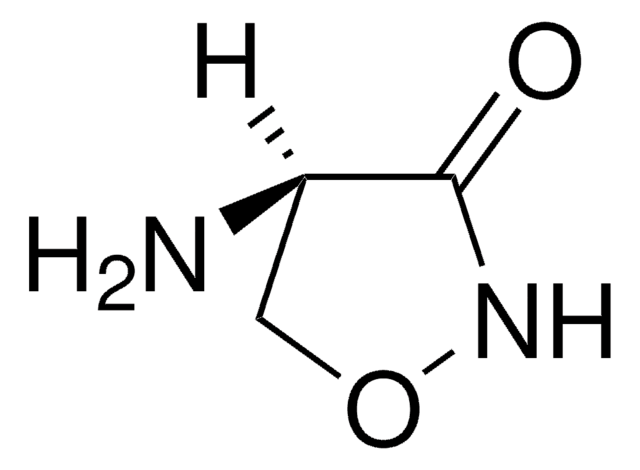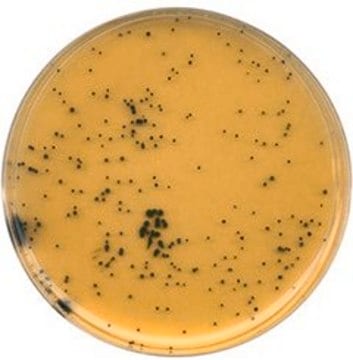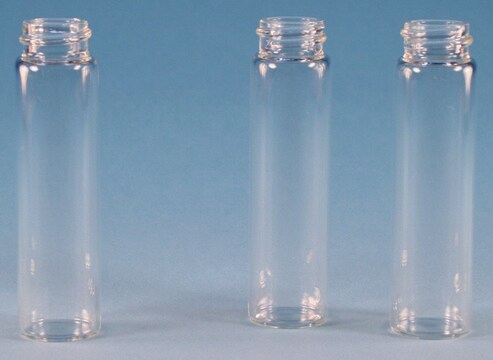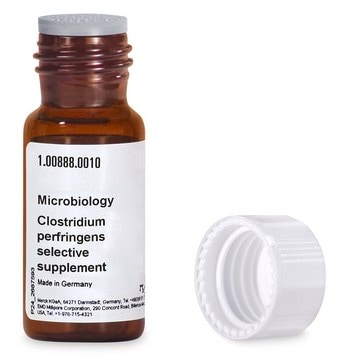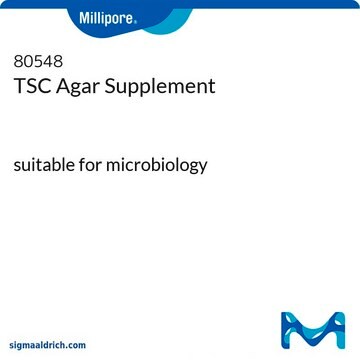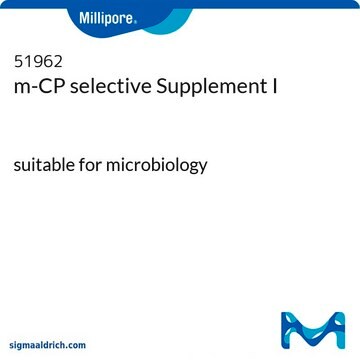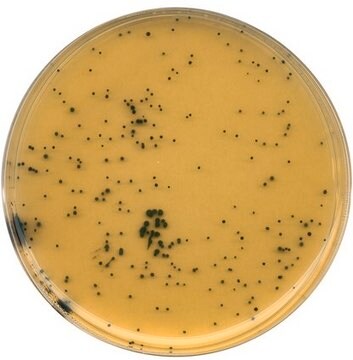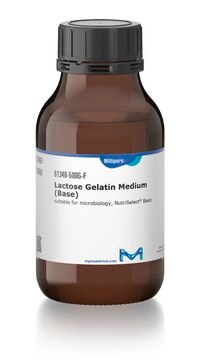おすすめの製品
由来生物
synthetic
品質水準
フォーム
powder
有効性
≥900 μg per mg
色
white to off-white
mp
147 °C (dec.) (lit.)
抗生物質活性スペクトル
Gram-negative bacteria
Gram-positive bacteria
mycobacteria
作用機序
cell wall synthesis | interferes
保管温度
−20°C
SMILES記法
N[C@@H]1CONC1=O
InChI
1S/C3H6N2O2/c4-2-1-7-5-3(2)6/h2H,1,4H2,(H,5,6)/t2-/m1/s1
InChI Key
DYDCUQKUCUHJBH-UWTATZPHSA-N
類似した製品をお探しですか? 訪問 製品比較ガイド
関連するカテゴリー
詳細
化学構造:アミノ酸誘導体
アプリケーション
d-シクロセリンは、さまざまな酵素の阻害剤として作用します。
生物化学的/生理学的作用
作用機序:細胞壁の生合成を阻害します(D-Alaとのペプチド結合形成)。また、D-AlaからL-Alaへの変換を阻止します。静菌性。耐性機序:D-Ala輸送干渉。
作用機序:細胞壁生合成を阻害(D-アラニン ペプチド結合形成)。また、D-アラニンからL-アラニンへの変換を妨げます。静菌性。
NMDAグルタミン酸作動性受容体のグリシン修飾部位の半アゴニスト;グラム陽性細菌に対する抗生物質。
抵抗性機序:D-アラニン輸送の妨害
NMDAグルタミン酸作動性受容体のグリシン修飾部位の半アゴニスト;グラム陽性細菌に対する抗生物質。
抵抗性機序:D-アラニン輸送の妨害
包装
1 g、5 g、25 g
その他情報
容器はしっかり密閉し、乾燥してよく換気された場所で保管します。不活性ガス中で保管します。空気の影響を受けやすいです。乾燥した場所に保管してください。
保管分類コード
11 - Combustible Solids
WGK
WGK 2
引火点(°F)
Not applicable
引火点(℃)
Not applicable
個人用保護具 (PPE)
Eyeshields, Gloves, type N95 (US)
適用法令
試験研究用途を考慮した関連法令を主に挙げております。化学物質以外については、一部の情報のみ提供しています。 製品を安全かつ合法的に使用することは、使用者の義務です。最新情報により修正される場合があります。WEBの反映には時間を要することがあるため、適宜SDSをご参照ください。
Jan Code
30020-1G:
30020-5G-PW:
30020-5G:
30020-VAR:
30020-BULK:
30020-25G-PW:
30020-25G:
30020-1G-PW:
最新バージョンのいずれかを選択してください:
試験成績書(COA)
Lot/Batch Number
この製品を見ている人はこちらもチェック
M.K. Jain
Handbook of Enzyme Inhibitors, 112-112 (1982)
Michael L Sulkowski et al.
Current psychiatry reviews, 10(4), 317-324 (2014-11-11)
Variants of exposure therapy are effective for treating obsessive-compulsive and related disorders (OCRDs). However, significant numbers of patients do not respond adequately to exposure therapy resulting in continued distress and functional impairment. Therefore, novel approaches to augmenting exposure therapy are
Mary M Torregrossa et al.
The Journal of neuroscience : the official journal of the Society for Neuroscience, 30(31), 10526-10533 (2010-08-06)
Extinction therapy has been proposed as a method to reduce the motivational impact of drug-associated cues to prevent relapse. Cue extinction therapy, however, takes place in a novel context (e.g., treatment facility), and is unlikely to be effective due to
Simon P Byrne et al.
Depression and anxiety, 32(6), 408-414 (2015-03-17)
For exposure therapy to be successful, it is essential that fear extinction learning extends beyond the treatment setting. D-cycloserine (DCS) may facilitate treatment gains by increasing generalization of extinction learning, however, its effects have not been tested in children. We
Stefan G Hofmann et al.
Current psychiatry reports, 17(1), 532-532 (2014-11-22)
Although cognitive behavioral therapy (CBT) is a generally effective treatment for treating anxiety disorders, there is clearly still room for further improvements. Recent advances in neuroscience of extinction learning led to novel clinical strategies to augment exposure-based treatments with d-cycloserine
ライフサイエンス、有機合成、材料科学、クロマトグラフィー、分析など、あらゆる分野の研究に経験のあるメンバーがおります。.
製品に関するお問い合わせはこちら(テクニカルサービス)